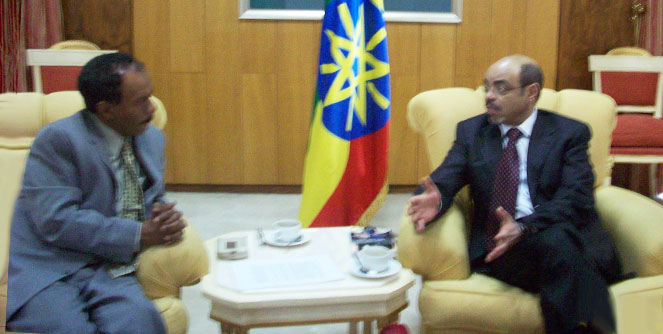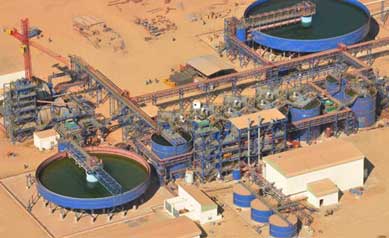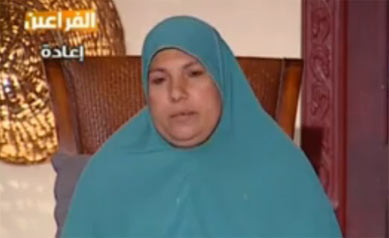Abdella Idris: The Cause Is Bigger Than The Man
 It was a long way from Barka, Eritrea to London, UK. An Eritrean born in the humble village of Shelab, Gerabit in Barka La’al, in March 1944, died in London on April 29, 2011, after he succumbed to an illness that had him bed-ridden for a decade, and he was buried in Kassala, Sudan on May 9th 2011. That was the beginning and the end of Abdalla Idris, but Eritrean history is not complete without his biography: his life and his contribution to the Eritrean cause for independence. And in these pages, we hope to challenge two Eritrean cultures: first is our tendency to believe the worst in people and second is our inability to carry on the legacy of our leaders.
It was a long way from Barka, Eritrea to London, UK. An Eritrean born in the humble village of Shelab, Gerabit in Barka La’al, in March 1944, died in London on April 29, 2011, after he succumbed to an illness that had him bed-ridden for a decade, and he was buried in Kassala, Sudan on May 9th 2011. That was the beginning and the end of Abdalla Idris, but Eritrean history is not complete without his biography: his life and his contribution to the Eritrean cause for independence. And in these pages, we hope to challenge two Eritrean cultures: first is our tendency to believe the worst in people and second is our inability to carry on the legacy of our leaders.
When we say “our tendency” we mean just that: we ourselves are guilty of this. If you were sympathetic to the Eritrean Liberation Front (ELF) or the Eritrean People’s Liberation Front (EPLF), there was one person that you were permitted to hate: Osman Saleh Sabbe. And why? Because we all believed the worst. Remember, we were told, that Osman Saleh Sabbe was zeyhagerawi, adharhari, and he had amassed millions on the name of Eritrea and that he had properties all over the Arab World. And what did we learn when he died penniless in an Egyptian hospital, leaving nothing for his family? He was buried in exile, despite the fact that he had struggled for Eritrean independence for decades. Is it right for a nation to go on vilifying people and when no proof appears, to ignore the crime as if one was not part of the evil campaign? Now where is the rehabilitation of Sabbe’s name; where do his family go to get back his good name?
Similarly, Abdella Idris was maligned for years—particularly by members of the EPLF, and those who came to be known as Falul within ELF, and those who have sketchy knowledge of Eritrean history and somehow feel that “to be objective” and “even handed”, they must latch on to someone to counterbalance the crimes of Isaias Afwerki. Beyond those who have sketchy knowledge of Eritrea, there are those who have pretty much come to regret the Eritrean cause (if they ever believed in it) and find it convenient to besmirch the name of every Eritrean revolutionary simply because they have come to hate the Revolution.
Here’s what is known about Abdella Idris.
As a young boy, Abdella Idris attempted to join the struggle and met the founder of the Eritrean struggle for independence, the great leader Hamid Idris Awate who turned him back because he was young—probably fifteen or so years old. He grudgingly went to Kassala and soon became the first carrier of ammunition that was collected from the Sudan and delivered it to Awate. He left for Cairo and enrolled in a school and when he was old enough, he joined the ELF in 1965 and was sent for a military training to Syria from where he graduated and returned to the field. His resume is impressive: Head of military affairs, General Command, 1968; member of revolutionary council and head of military department, 1971; member of revolutionary council, member of executive committee and head of military department, 1975.
Mention Abdella Idris and those who malign him will say: he was a tribalist. He hated highlanders. He was power-hungry. He was a killer. They never bother to provide supporting evidence or argument for their accusation: for them, it was good enough that they heard the claim from somebody that they admire. But the history of Abdella Idris, like that of many of the men and women who came to lead the Eritrean Revolution, is much more nuanced, much more complex than the cartoons that the history revisionists and the naive present. We say “like that of many of the men and women who came to lead the Eritrean Revolution” and, by that, we certainly include Isaias Afwerki. The Awate Team has never devoted pages and pages to demonize Isaias’ leadership of the EPLF; our problem, and our main focus has always been how he is leading Eritrea. And for that, we are witnesses to tomorrow’s history.
The accusations against Abdella Idris are either flat out wrong, or they have not been proven. Surely, he was a very controversial figure—as most men who make unpopular decisions turn out to be. But let’s look at each of the accusations against him individually:
Was Abdella Idris A Prejudiced Muslim Or Tribalist?
The accusations of Abdalla are all centered around his identity: he is a Beni Amer, A Muslim and believed he is an Arab. Ask the many Eritreans who hate Abdella Idris of his background, and they will tell you he has been a tribalist with the first zone. A little history: using a structure inspired by Algeria’s Front de Libération Nationale (FLN)— the ELF organized the Eritrean field using a decentralized system of military zones. This decentralized structure made perfect sense for a guerilla front—it enabled each zone to recruit from its base and the revolution incubated in its locality. The Revolution still being young, it had no capacity for complex military operations that require co-ordination of specialized units. In any event, each zone was led, and had most of its enlistments from each locality. Here are the names of the zones and their commands:
Zone 1 (Barka): Mahmoud Dinai;
Zone 2 (Senhit): Omer Ezaz;
Zone 3: (Eastern Highlands) Abdulkerim Ahmed;
Zone 4 (Red Sea): Mohammed Ali Omaro:
Zone 5: (Central highlands): Woldai Kahssai
In the early stages of the Eritrean revolution, the base was rural, Western Eritrea (populated overwhelmingly by Eritrean Muslims.) As this evolved, a new zone (fifth zone) was added.
Years later, the EPLF criticized this system as one which encouraged fiefdoms and it advocated the approach of the highly centralized “melting pot”. It cynically accused the ELF of being a “Muslim organization” (incidentally, the same accusation leveled now at the EDA), not because of the program the ELF advocated (nationalist, at first, and later on socialist) but of the names of the leadership.
The manifesto of “We And Our Objectives” also cynically pretended that it was the only reform movement when, as the ELF grew, and its membership diversified, there were many voices arguing that the zonal command structure was outdated and needed to be replaced, and that the fighters should be integrated.
Abdella Idris was never stationed in Zone 1, which according to the critics, is where all the Beni Amer should be. He was with the fifth zone (the central highland zone) together with Isaias Afwerki, who was his assistant. And together with the late Mohammed Ahmed Abdu, who was also a symbol in the vilification of the General Command, Qyadda AlAma, Abdella Idris played an important role in bringing the zones together to Adobha where he was elected the commander of the armed forces.
Was Abdella Idris a tribalist? Of all the accusations against him, that has to be the most baseless because Abdella Idris showed no favoritism when he was the enforcer of Jebha’s rules. And he did not spare his “tribe” of punishment when some members of his “tribe” were accused of collaborating with colonial Ethiopia. This is not to say that the “revolutionary justice” of the revolution was just or right; it is to say that it was not selectively enforced by Abdella Idris.
Was Abdella Idris A Killer?
Mention Abdella Idris and people will immediately say, “Abdella Killed Melaake.” Even those who don’t know anything about Melaake Tekle will say that. They will say Abdella liquidated the Falul. They will say that he was instrumental in both the civil wars. But where is the testimony, the history?
The accusers say Abdella Idris (or “the likes of Abdella Idris” as they like to say) was responsible for the first civil war (1972-74) between the ELF and the PLF (the precursor to the EPLF). Then they throw figures of the causalities, thousands were killed—the most common number is 3000 killed. When, in fact, (a) the decision to engage in civil war was a joint decision of the ELF leadership and Abdella was simply part of the leadership—he has no personal responsibility there and (b) the causalities from the civil war of 72-74 were not more than 200. Obviously, the death of any Eritrean, specially in a civil war, is appalling; but there is a huge difference between 200 and 3,000.
Abdella Idris was in charge of the military office of the ELF. Here’s what is not well-known about him: in the Second National Congress of the Eritrean Liberation Front (ELF), he was begged to be its Secretary General and he rejected the offer insisting that he is a military officer who wanted to stay as a military commander. The decision to pursue a policy of “the Eritrean field can accommodate only one organization” was not Abdella Idris’s policy; it was that of the leadership of the ELF (specifically that of the labor Party, a secret party within the ELF). The decision to take military steps against the Falul movement was not that of Abdella Idris; it was not even exclusively that of the ELF leadership. It is a decision shard by the leaders of Falul.
The Eritrean revolution was, like all revolutions, fierce: it was very confrontational, and some of which manifested itself in acute political clashes, assassinations, liquidations and of course, defamations and vilification. Fair is fair and Abdella Idris had a senior position when all these measures were taken which means it is natural for him to assume some of the responsibility for any wrongdoing. But that is a responsibility that will have to be spread among all senior leaders of the revolution, and only after a careful study and testimony.
The Defeat Of The ELF
Of the many things Abdella Idris is vilified for, it is for the incidents which developed after the joint EPLF/TPLF attack pushed the ELF into Sudan in 1981, and Sudan’s President Jaafer Numeri gave the ELF an ultimatum to surrender or vacate Sudanese territories. Any time an organization faces an existential crisis, differences will emerge on the way forward. And there will be a great deal of bitterness by the rank and file on how its leadership allowed the crisis to happen: fingers will be pointed and heads will roll.
How this happened is beyond the scope of this writing: it requires dispassionate narrators to piece together the story. What is clear is that after the ELF surrendered to Sudanese authorities (and some of its leadership was held in detention for a year), there were several “trends”: the one which was pursued by Sagem (to join EPLF) and Sagem-Qetsel (to continue the struggle); the one which was pursued by what came to be known as ELF-Revolutionary Council (ELF-RC), which was to re-organize after conducting a congress; and the one which was used by the organization which retained the name ELF, which was headed by Abdella Idris, refused to surrender its arms to the Sudanese and opted for going back to the Eritrean field.
This is a messy period of Eritrean history. The ELF-RC accused Abdella Idris of carrying out a coup d’etat, an extra-legal assumption of power; Abdella Idris said that the ELF had an “intifada”—an uprising or, more literally, a “shaking off”, shaking off the ELF of its morass and its drift. It was messy because it separated life-long partners and comrades and it was followed by assassination of any capable Eritrean who was considered a potential threat.
 Hamid Tumsah was killed; Melaake Tekle was killed. Hangela was killed. Osman Saleh was killed. Saeed Saleh was killed. Osman Ajeeb was killed. Haile Garza was killed. Mahmoud Hassab was killed. To those who had pinned their hopes on the ELF, this period is analogous to the period when the American civil rights movement witnessed the assassination of the Kennedies, Martin Luther King and Malcolm X. It was a period when the ground shifted and it was impossible to regain faith after that era. And in the anger and bitterness that ensued, there were many who were blamed, and topping that list was always the late Abdella Idris.
Hamid Tumsah was killed; Melaake Tekle was killed. Hangela was killed. Osman Saleh was killed. Saeed Saleh was killed. Osman Ajeeb was killed. Haile Garza was killed. Mahmoud Hassab was killed. To those who had pinned their hopes on the ELF, this period is analogous to the period when the American civil rights movement witnessed the assassination of the Kennedies, Martin Luther King and Malcolm X. It was a period when the ground shifted and it was impossible to regain faith after that era. And in the anger and bitterness that ensued, there were many who were blamed, and topping that list was always the late Abdella Idris.
But Abdella Idris is revered among a large section of Eritreans, his character is almost mythical mainly in Western Eritrea. Why? Abdella Idris is revered because he exemplified what we always find admirable in men: he was fearless, undeterred by odds, he fought for his beliefs, and he was an absolutely resolute man. When people hear the word “resolute”, they may think it means rigid, inflexible and hot-headed. He was none of those. He was a listener, he sought ideas, but once he had made up his mind on the best course, he did not spend a lot of time second guessing himself.
The organization that Abdella Idris established his name in, the ELF, is now a fragmented remnant of its former self. The Alliance of Eritrean opposition that he helped found, is now dithering, neither alive nor dead. It is hard to avoid the conclusion that, had Abdella Idris been in good health the last ten years, the kind of indecision, dithering, and circling-the-wagons would have been avoided.
 But Abdella Idris is now dead, and, after the appropriate eulogy, it is time to move on. After the death of the Prophet Mohammed, the message that was given was: “If any of you worship Muhammad, you should know that Muhammad is dead. But those of you who worship Allah, let it be known that Allah is alive and cannot die.” Abdella Idris was a man, a human being and he is dead, but the cause for which he left his home and struggled for decades, that of FREEDOM, is still unresolved. He is buried outside his country together with many heroes who died after the “liberation of Eritrea,” including Seyoum Ogbamichael, Abu Sheneb, and many others.
But Abdella Idris is now dead, and, after the appropriate eulogy, it is time to move on. After the death of the Prophet Mohammed, the message that was given was: “If any of you worship Muhammad, you should know that Muhammad is dead. But those of you who worship Allah, let it be known that Allah is alive and cannot die.” Abdella Idris was a man, a human being and he is dead, but the cause for which he left his home and struggled for decades, that of FREEDOM, is still unresolved. He is buried outside his country together with many heroes who died after the “liberation of Eritrea,” including Seyoum Ogbamichael, Abu Sheneb, and many others.
It is a cruel fate of irony that those who were at the forefront of raising awareness about love of country, patriotism, love of freedom and independence, the trailblazers who paved the way of the struggle, the pioneers who attracted every Eritrean to the fold, the founders and early leaders of Jebha, the ELF, are treated as strangers to their own land. The pioneers are either languishing in refugee lands or already contained in graves away from Eritrea. And as long as the tyrant in Eritrea rules, such human tragedies will continue to unfold, and the rage will eventually boil over. But the dream will never die: as Tayseer Frehannes wrote on Facebook: “..we the children of martyrs and the children of veterans will inherit the history of the fathers to the grandchildren, and we will die for it; and the banner of the veterans and the noble will not fall down; but whoever climbed over their pieces and walked over land painted with the their blood”…
Abdella was buried at the Hassen and Hussien cemetery in Kassala and big crowds from all over the Sudan paid him respects and interned his coffin wrapped by the Eritrean flag.




Awate Forum